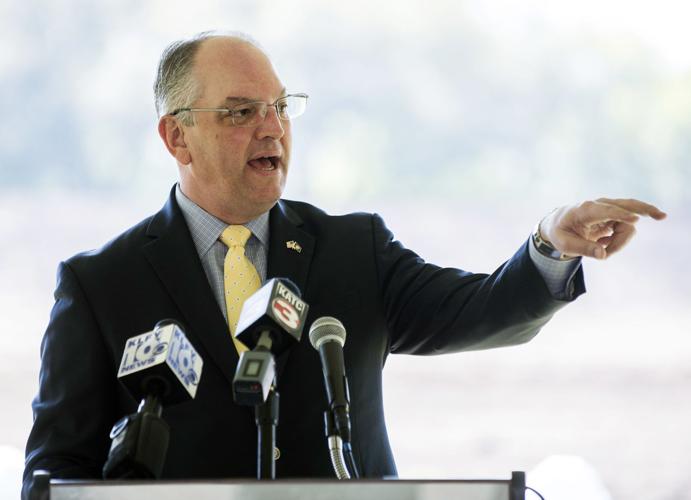A little more than a year ago, The Wall Street Journal called out Louisiana Gov. John Bel Edwards for talking up lawsuits against oil companies doing business in the state. Not a good look for Louisiana in a publication with a well-established corporate investor following.
Edwards, a Democrat, has won favor with his big-donor trial lawyer buddies by encouraging lawsuits against deep-pocketed oil companies. The governor justifies his money grab of "Big Oil" by claiming the industry helped destroy Louisiana's coastal wetlands with exploration practices, such as digging canals, that accelerated erosion.
But Chris McLindon, president of the New Orleans Geological Society, says canals didn't cause most of the loss of Louisiana wetlands. The society has members from the energy industry, academia and the environmental field. He attributes the vast majority of wetland loss on natural subsidence caused by a combination of factors, including the downward pull of the weight of sediments and fault movement. He says as sediments flowing down the Mississippi River compact, it causes subsidence.
"The North American Continental plate is sinking under the Gulf Coast region. The tectonic fabric of this part of the continent is causing the Mississippi River basin to subside," said McLindon.
When platonic plates shift in California, the earth shakes. When they shift in south Louisiana, the earth subsides resulting in wetland loss. Subsidence isn't commonly blamed by trial lawyers for wetland loss; it's coastal erosion supposedly caused by oil company canals.
McLindon, who works in the oil industry but nonetheless offers compelling evidence, says every major river basin in the world, much like the one in south Louisiana, experiences subsidence and wetlands loss. It's true even for river basins where there has been no oil and gas exploration. And he says there is not a single example, anywhere in the world, of reversing subsidence of a river basin.
Subsidence also occurs in episodes. McLindon says most of Louisiana's loss of wetlands happened between the 1930s and 1970s during an episode of accelerated subsidence caused in part by fault movement.
McLindon also says there are several often-repeated myths about wetland loss in Louisiana. He says the widely reported claim that Louisiana currently loses one football field an hour of wetlands is not true. He says that claim is based on a trend from data taken during a period of decades.
"Effectively the loss of wetlands has been zero for the past 10 years. The combined narratives of being in a state of emergency and humans can reverse wetlands loss leads to the idea we need to spend as much money as we can as soon as we can, " said McLindon.
McLindon says another myth is the oil industry has admitted its canals are to blame for coastal erosion leading to wetland loss. Also not true, he says.
McLindon says the idea canals are to blame for Louisiana wetland loss comes from a 1988 study that ignores a much stronger correlation between subsidence and fault lines.
"The correlation isn't that good for the canals. There are areas with canals with wetlands loss. There are areas with canals with no associated wetlands loss. There are areas with wetland loss with no canals. Across the board, it's not a good fit. What's a better fit is the correlation between where faults extend to the surface and wetland loss occurs," said McLindon.
State Sen. Sharon Hewitt, R-Slidell, who's a former oil company executive, says McLindon's research on Louisiana wetland loss is crucial.
"I believe the work Chris McLindon and the New Orleans Geological Society are doing in conjunction with a number of Louisiana universities will provide critical information for future infrastructure investments," said Hewitt.
The U.S. Army Corps of Engineers recently announced that levees near New Orleans will require a lift prior to 2023 to maintain flood insurance accreditation. Much of the data needed to understand the issue of subsidence and which levees require lifting will come from the oil industry. New Orleans Mayor LaToya Cantrell, joining other surrounding jurisdictions, recently involved the city in a lawsuit against the oil industry. McLindon says litigation often obstructs the oil industry's ability to work cooperatively with government.
If McLindon is right about subsidence as the main cause of wetland loss, it's bad news for Edwards and his trial lawyer buddies. They can't very well sue Mother Nature for being herself.
Email Dan Fagan at faganshow@gmail.com. Twitter: @DanFaganShow.




